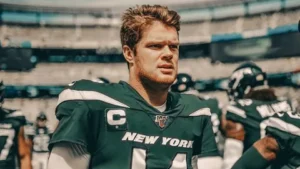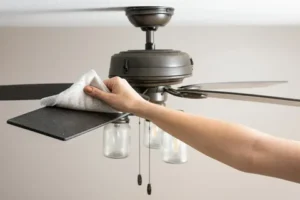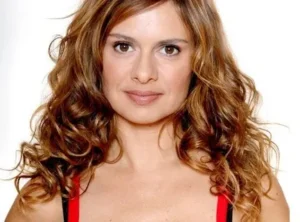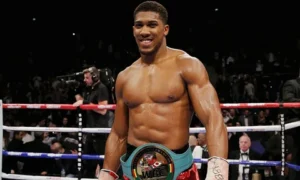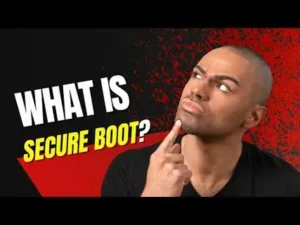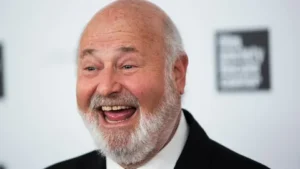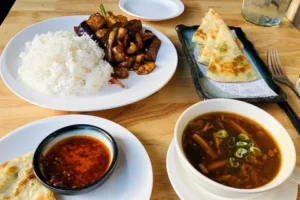You know that feeling when you stumble upon someone’s story and think, “Wait, how did I not know about this person sooner?” That’s exactly how I felt when I first dug deep into Floella Benjamin’s life. Here’s a woman who arrived in England as a 10-year-old Windrush child, faced the harsh realities of racism and displacement, and then—somehow—became one of the most beloved faces on British television. But that’s just the beginning.
Let me walk you through the extraordinary life of Baroness Floella Benjamin, a woman who didn’t just break barriers—she demolished them with grace, determination, and an infectious smile that warmed millions of homes across Britain.
The Trinidad Roots: Where It All Began
Floella Benjamin’s early life in Trinidad started on September 23, 1949, in a small town called Pointe-à-Pierre. Picture this: a sun-drenched Caribbean island, palm trees swaying, and a young girl growing up surrounded by love, laughter, and the vibrant culture of Trinidad and Tobago. She was one of six siblings—one older sister, three younger brothers, and a younger sister—in a household that was probably as chaotic as it was joyful.
Her earliest memories? Pure Caribbean magic. She recalls being three years old, soaking in the warmth of that island life. Those memories became treasures she’d carry with her through much darker times ahead.
But here’s where the story takes a turn that shaped everything that followed.
The Windrush Journey: A 10-Year-Old’s Brave New World
Floella Benjamin’s childhood immigration experience in 1960 was nothing short of traumatic. Imagine being ten years old, leaving behind everything you know—the sunshine, your friends, the familiar sounds and smells—and boarding a ship to a country you’ve only heard about in stories. She came to Britain in 1960, part of the Windrush generation that answered the call for workers to help rebuild post-war Britain.
The Windrush story isn’t just history—it’s personal for Floella. She was the first Trinidadian woman to be elevated to the House of Lords, a fact that would have made her parents incredibly proud. But the path to that historic achievement was paved with challenges that would have broken lesser spirits.
She faced physical and racial abuse as a child, experiencing the ugly side of 1960s Britain head-on. The culture shock was immense. From tropical warmth to cold British winters. From acceptance to discrimination. From knowing who you are to constantly being reminded you’re “different.”
Yet instead of becoming bitter, Floella developed something remarkable: resilience wrapped in kindness.
What Was It Really Like?
Floella Benjamin’s memoir “Coming to England” tells this story with raw honesty. It’s not sugar-coated. She writes about the confusion, the hurt, the bewilderment of being treated as less-than simply because of the color of her skin. The book has become required reading in many schools, helping new generations understand the Windrush experience through a child’s eyes.
| Life in Trinidad | Life in England (1960s) |
|---|---|
| Warm, tropical climate | Cold, grey weather |
| Surrounded by family | Separated, feeling isolated |
| Accepted and loved | Facing racial prejudice |
| Cultural familiarity | Complete culture shock |
From Bank Clerk to Television Icon
Here’s where Floella’s story gets really interesting. She left school at 16 with an ambitious goal: to become Britain’s first Black woman bank manager. That’s the kind of audacious dream that shows you exactly what kind of person she is. She wasn’t aiming small.
But life had other plans.
The Play School Era: Changing the Face of British TV
Floella Benjamin’s role on Play School beginning in 1976 was revolutionary—and I don’t use that word lightly. Her first presenting role was in 1976, where she led the children’s TV show ‘Play School’, becoming one of the first Black women to present a major children’s television program in Britain.
Think about what that meant. Millions of British children grew up seeing Floella on their screens, normalizing diversity in a way that had never happened before. She wasn’t playing a stereotype or a supporting character—she was the warm, intelligent, creative person welcoming kids into a world of learning and imagination.
Play School in the 1970s wasn’t just entertainment; it was formative. And Floella knew it. She understood the power of representation before that term became the buzzword it is today.
Then came Play Away, the BBC show that took the Play School magic and cranked it up a notch. More music, more energy, more Floella being absolutely brilliant at what she did.
Television Shows That Defined a Generation
Let me list the major TV shows Floella Benjamin presented in the 1970s and 1980s:
- Play School (1976-1986) – The flagship show that made her a household name
- Play Away (1971-1984) – Music and fun for slightly older kids
- Fast Forward (1989-1990s) – Educational programming
- Various other children’s programs and specials
Floella Benjamin’s contribution to broadcasting went beyond just presenting. In 1987, she turned some of her boundless energy to setting up her own television production company with her husband Keith Taylor, producing hundreds of programmes, primarily for children.
She wasn’t content to just be in front of the camera—she wanted to shape what children watched, ensuring quality programming that respected young viewers’ intelligence.
The Baroness Benjamin: From TV Star to Political Powerhouse
Now, if you thought Floella was done after conquering television, you clearly don’t know her very well.
Is Floella Benjamin a baroness? Absolutely. On 28 June 2010, Lady Benjamin was introduced to the House of Lords as a life peer nominated by the Liberal Democrats. Her full title? The Baroness Benjamin of Beckenham, OM DBE DL.
Let’s break down what that alphabet soup actually means:
- Baroness – Life peer in the House of Lords
- OM – Order of Merit (one of the highest honors)
- DBE – Dame Commander of the British Empire
- DL – Deputy Lieutenant
When was Floella Benjamin made a peer? The historic date was June 28, 2010. She was introduced as a Liberal Democrat Peer in June 2010, the first Trinidadian woman to be elevated. She wished her beloved parents had been alive to witness that momentous day.
What Does She Actually Do in the House of Lords?
Floella Benjamin’s role in the House of Lords is far from ceremonial. She speaks on children’s, diversity and media issues and was recently successful in getting the government to bring in legislation for commercial broadcasters to provide UK made television programmes.
This isn’t someone who took a title and disappeared into fancy dinners. She’s actively fighting for:
- Children’s rights and welfare
- Diversity in media and broadcasting
- Quality children’s television programming
- Women’s issues
- Arts and culture
Floella Benjamin as a Liberal Democrat peer means she brings her decades of experience working with children and understanding media to actual policy-making. That’s powerful.
The Children’s Champion: Books, Advocacy, and Lasting Impact
How did Floella Benjamin become a champion for children’s rights? It wasn’t a sudden decision—it was a natural evolution of her life’s work. She is very passionate about helping children and improving education, supporting many charities, including NSPCC, Childline, and Barnardo’s, and has often run the London Marathon to raise money for these causes.
Yes, you read that right. This woman runs marathons for children’s charities. Because apparently, being a baroness, author, and television icon wasn’t keeping her busy enough.
Floella Benjamin as a Children’s Author
What children’s books has Floella Benjamin written? She’s authored numerous books, with her most impactful being “Coming to England”—her memoir that’s become essential reading for understanding the Windrush experience through a child’s perspective.
But she’s also written:
- Picture books for young children
- Educational books
- Autobiographical works including “What Are You Doing Here?”
- Stories celebrating diversity and inclusion
Floella Benjamin campaigned vigorously for diversity in children’s books for over fifty years, understanding that children need to see themselves reflected in the stories they read.
The Awards Keep Coming: Recognition Well Deserved
What awards and honors has Floella Benjamin received? Buckle up, because this list is impressive:
- OBE (2001) – Awarded by the Queen for services to broadcasting and charity
- DBE – Made a Dame Commander
- Life Peerage (2010) – Elevated to the House of Lords
- Order of Merit
- BAFTA Fellowship (2024) – Honored with the BAFTA Fellowship award for her services to television
- Chancellor of the University of Exeter – An academic leadership role
- Multiple honorary degrees from universities
- Numerous broadcasting and charity awards
That BAFTA Fellowship in 2024 is particularly meaningful—it’s one of the highest honors in British television, given to individuals who’ve made an outstanding contribution to the industry. Past recipients include David Attenborough, Julie Walters, and Judi Dench. That’s the company Floella keeps.
Recent Recognition Timeline
| Year | Honor |
|---|---|
| 2001 | OBE for broadcasting and charity |
| 2010 | Life peerage – Baroness Benjamin |
| 2020s | Dame Commander (DBE) |
| 2024 | BAFTA Fellowship |
The Personal Side: More Than Just Accolades
Here’s something that tells you everything about Floella’s character: According to her biography “What Are You Doing Here?”, she may have even been the only woman resistant to David Bowie’s charms. He said “I want to offer you the world”, but apparently, she declined to take him up on the offer.
Can you imagine? David Bowie himself, and she said no thanks. That’s conviction.
She’s been married to her husband Keith Taylor, and together they built that television production company that created hundreds of programs for children. It’s a partnership that clearly works—both professionally and personally.
Still Going Strong: What’s She Up To Now?
Is Floella Benjamin still working in television? While she’s not a regular presenter anymore, she’s far from retired. Her current work includes:
- Active participation in the House of Lords
- Continuing advocacy for children’s rights
- Speaking engagements on diversity and inclusion
- Supporting various charities
- Working as Chancellor of the University of Exeter
- Writing and promoting literacy
She’s also incredibly active on social media, sharing messages about Black History Month, children’s welfare, and the importance of quality programming.
The Lasting Impact: How Floella Changed Everything
How has Floella Benjamin influenced British broadcasting and diversity? Let me count the ways:
Representation Matters Before Floella, British children’s television was overwhelmingly white. She changed that simply by being brilliant at her job, proving that talent and warmth transcend race. Generations of British children grew up seeing her as a friendly, familiar face—normalizing diversity in the most powerful way possible.
Policy Change Her work in the House of Lords has led to actual legislative changes requiring broadcasters to provide UK-made children’s television. That’s not just influence—that’s tangible impact.
Inspiration for Others How many Black British broadcasters today were inspired by seeing Floella on their screens as children? How many thought, “If she can do it, maybe I can too”? The ripple effect is immeasurable.
Challenging Stereotypes The world is not something Benjamin waits to be given to her. It’s something she’s bravely taken for herself: crafting it the way she wanted to see it when she arrived here as a Windrush child from Trinidad and Tobago.
She didn’t wait for permission. She didn’t accept limitations. She created the world she wanted to live in—and invited everyone else to join her.
Lessons from a Life Well Lived
What can we learn from Floella Benjamin’s career timeline? A few things stand out:
Resilience Over Bitterness Despite facing racism and hardship, she chose kindness. That takes strength most of us can’t imagine.
Vision Beyond Circumstances From that 10-year-old Windrush child to a baroness—she never let her starting point define her destination.
Service to Others Every phase of her career has been about helping children, whether through entertainment, education, or policy. That’s a legacy worth having.
Breaking Barriers by Being Excellent She didn’t just want to be the first Black woman in these spaces—she wanted to be the best. And she was.
The Bigger Picture: Why Her Story Matters Today
In 2024, when we’re still having conversations about diversity and representation, Floella Benjamin’s story feels both encouraging and frustrating. Encouraging because look what one determined person can achieve. Frustrating because why was it so hard? Why did it take so long?
But that’s exactly why stories like hers matter. They remind us that progress is possible, that individual actions compound into systemic change, and that representation truly does matter—not as some abstract concept, but in the lived experience of children seeing someone who looks like them succeeding, thriving, being loved.
Floella Benjamin’s contribution to children’s television wasn’t just about entertaining kids for a few hours a week. It was about showing them—all of them—what was possible. It was about dignity, respect, and the revolutionary act of simply being yourself, unapologetically, in spaces that weren’t built for you.
A Living Legend Among Us
Here’s what strikes me most about Floella: she’s still here, still working, still fighting for children. That BAFTA Fellowship in 2024 wasn’t a lifetime achievement award signaling the end—it’s recognition of ongoing excellence.
She’s in her mid-70s now, but if you follow her work, you’d never guess it. The energy, the passion, the commitment—it’s all still there. That’s the thing about purpose-driven people: they don’t retire from making a difference.
Your Turn: What’s Your Floella Story?
I’d love to know: Did you grow up watching Floella on Play School? Have you read “Coming to England”? What impact has her work had on your understanding of diversity in media?
Drop a comment below and let’s keep this conversation going. Because if there’s one thing Floella Benjamin has taught us, it’s that our stories matter—all of them. And when we share them, we create space for others to step into their own power.
And hey, if you found this biography helpful, share it. Let’s make sure more people know about this incredible woman who changed British television forever.
Looking for more inspiring biographies of trailblazers who changed the world? Subscribe to stay updated with our latest posts celebrating remarkable lives and lasting legacies.

